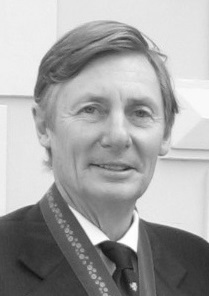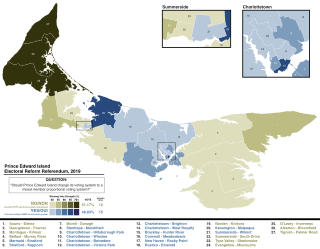
Norfolk Island is an external territory of Australia located in the Pacific Ocean between New Zealand and New Caledonia, 1,412 kilometres (877 mi) directly east of Australia's Evans Head and about 900 kilometres (560 mi) from Lord Howe Island. Together with the neighbouring Phillip Island and Nepean Island, the three islands collectively form the Territory of Norfolk Island. At the 2021 census, it had 2,188 inhabitants living on a total area of about 35 km2 (14 sq mi). Its capital is Kingston.

Politics of Norfolk Island takes place in a framework of a parliamentary representative democratic entity. Norfolk Island is the only non-mainland Australian territory to have achieved self-governance. The Norfolk Island Act 1979, passed by the Parliament of Australia in 1979, is the Act under which the island is governed.

Bermuda is the oldest British Overseas Territory, and the oldest self-governing British Overseas Territory, and has a great degree of internal autonomy through authority and roles of governance delegated to it by the national Government. Its parliament held its first session in 1620, making it the third-oldest continuous parliament in the world. As part of the British realm, King Charles III is head of state and is represented in Bermuda by a Governor, whom he appoints on the advice of the British Government. The Governor has special responsibilities in four areas: external affairs, defence, internal security, and policing.
National referendums are seldom used in Canada. The first two referendums in 1898 and 1942 saw voters in Quebec and the remainder of Canada take dramatically-opposing stands, and the third in 1992 saw most of the voters take a stand dramatically opposed to that of the politicians in power.
Politics of the Australian state of Victoria takes place in the context of a constitutional monarchy with a bicameral parliamentary system, and like other Australian states, Victoria is part of the federation known as the Commonwealth of Australia.

Referendums in the United Kingdom are occasionally held at a national, regional or local level. Historically, national referendums are rare due to the long-standing principle of parliamentary sovereignty. There is no constitutional requirement to hold a national referendum for any purpose or on any issue however the UK Parliament is free to legislate through an Act of Parliament for a referendum to be held on any question at any time.

The Scottish devolution referendum of 1997 was a pre-legislative referendum held in Scotland on 11 September 1997 over whether there was support for the creation of a Scottish Parliament with devolved powers, and whether the Parliament should have tax-varying powers. The result was "Yes–Yes": a majority voted in favour of both proposals, and the Parliament was established following an election in 1999. Turnout for the referendum was 60.4%.

A referendum was held in the Canadian province of British Columbia on May 17, 2005, to determine whether or not to adopt the recommendation of the Citizens' Assembly on Electoral Reform to replace the existing first-past-the-post electoral system (FPTP) with a single transferable vote system (BC-STV). It was held in conjunction with the BC Legislative Assembly election of 2005. Voters were given two ballots at that time: a ballot to vote for a Member of the Legislative Assembly of British Columbia (MLA) in their constituency and a referendum ballot. The referendum received considerable support from the electorate but failed in meeting the 60-percent threshold that had been set. A second referendum was held in 2009.

The Australian republic referendum held on 6 November 1999 was a two-question referendum to amend the Constitution of Australia. The first question asked whether Australia should become a republic, with a president appointed by Parliament following a bi-partisan appointment model which had been approved by a half-elected, half-appointed Constitutional Convention held in Canberra in February 1998. The second question, generally deemed to be far less important politically, asked whether Australia should alter the Constitution to insert a preamble. Since the early 1990s opinion polls had suggested that a majority of the electorate favoured a republic in principle. Nonetheless, the republic referendum was defeated.

Norfolk Island elects on territorial level a legislature. The Norfolk Legislative Assembly has 9 members, elected for a three-year term. The last assembly was the 14th, elected on 13 March 2013. On 17 June 2015, the Australian government abolished the assembly, ending self-government on the island. Norfolk Island Regional Council, a local government body with significantly-restricted powers, was established in July 2016 to perform local-level governance on the island.

A referendum was held on October 10, 2007, on the question of whether to establish a mixed member proportional representation (MMP) system for elections to the Legislative Assembly of Ontario. The vote was strongly in favour of the existing plurality voting or first-past-the-post (FPTP) system.

The Norfolk Island Legislative Assembly was the prime legislative body of Norfolk Island from 1979 to 2015. Formed after the Norfolk Island Act 1979 was passed in the Australian Parliament, its first members were elected on 10 August 1979. The last assembly was the 14th, elected on 13 March 2013. On 17 June 2015, the Australian Government abolished the assembly, ending self-government on the island. Norfolk Island Regional Council, a local government body instituted under New South Wales law and with significantly-restricted powers, was established in July 2016 to perform local-level governance on the island.
The Politics of British Columbia involve not only the governance of British Columbia, Canada, and the various political factions that have held or vied for legislative power, but also a number of experiments or attempts at political and electoral reform.

State elections were held in South Australia on 25 November 1989. All 47 seats in the South Australian House of Assembly were up for election. The incumbent Australian Labor Party led by Premier of South Australia John Bannon defeated the Liberal Party of Australia led by Leader of the Opposition John Olsen. Labor won 22 out of 47 seats, and secured a majority of 24 with the support of two Independent Labor members.

In the United Kingdom, devolution is the Parliament of the United Kingdom's statutory granting of a greater level of self-government to the Scottish Parliament, the Senedd, the Northern Ireland Assembly and the London Assembly and to their associated executive bodies: the Scottish Government, the Welsh Government, the Northern Ireland Executive and in England, the Greater London Authority and combined authorities.
A referendum on political status was held in the Falkland Islands on 10–11 March 2013. The Falkland Islanders were asked whether or not they supported the continuation of their status as an Overseas Territory of the United Kingdom in view of Argentina's call for negotiations on the islands' sovereignty.

The island groups of Orkney, Shetland and the Western Isles are all currently regions of Scotland. Their constitutional status has periodically been discussed, for example during the Scottish independence referendum campaign. Currently, they are council areas with the same constitutional status as the other 29 local government areas. The three island councils are the only local authorities among the 32 in the country where independent councillors form a majority.

A referendum on electoral reform was held on April 23, 2019, in the Canadian province of Prince Edward Island – simultaneously with the 2019 provincial election – to determine if the province should adopt a mixed-member proportional representation voting system (MMP). A narrow majority voted to keep the existing first-past-the-post system. However, the referendum was not binding, as neither the yes or no side received majority support in 60% or more of the province's 27 electoral districts.

The Norfolk Island Labor Party, also known simply as Norfolk Labor, was the Norfolk Island branch of the Australian Labor Party. It operated as a sub-branch of the ACT Labor Party.

The Norfolk Island Liberal Party, more commonly referred to simply as the Norfolk Liberals, is the Norfolk Island wing of the Liberal Party of Australia. It currently operates as the "Norfolk Island Interest Branch" of the Canberra Liberals.












